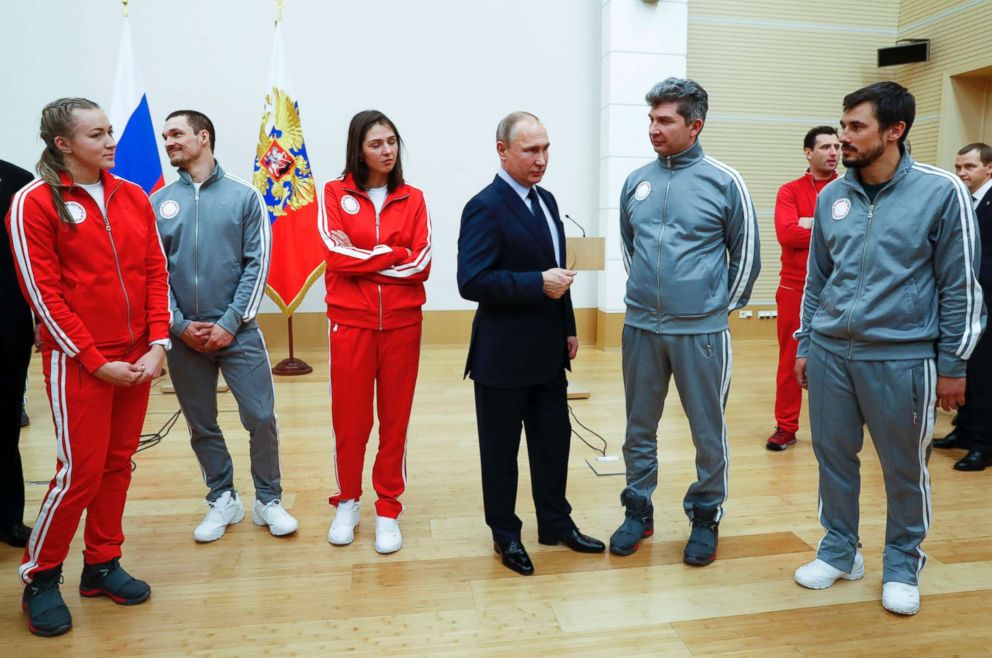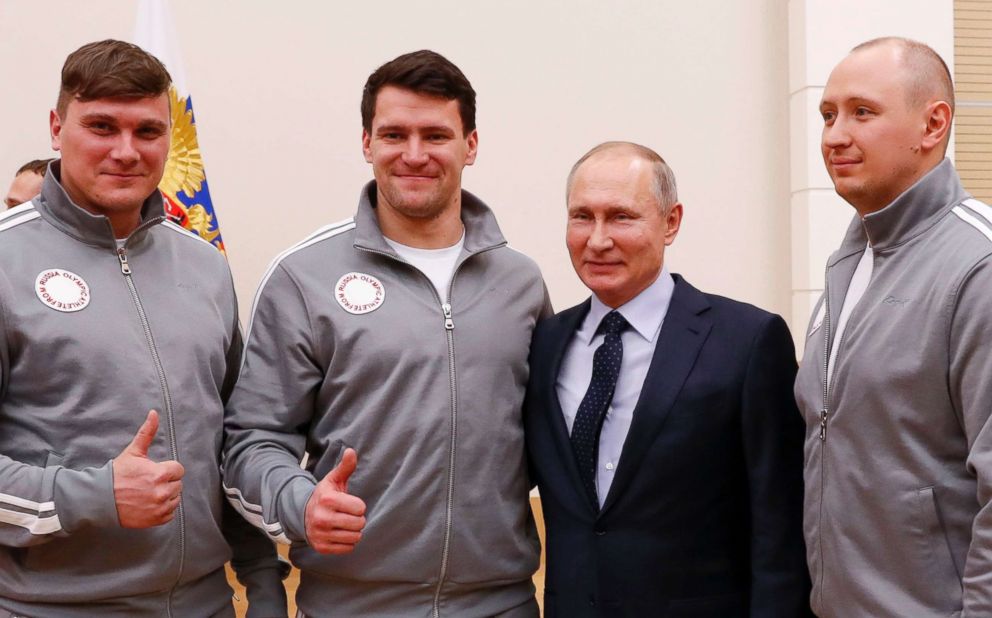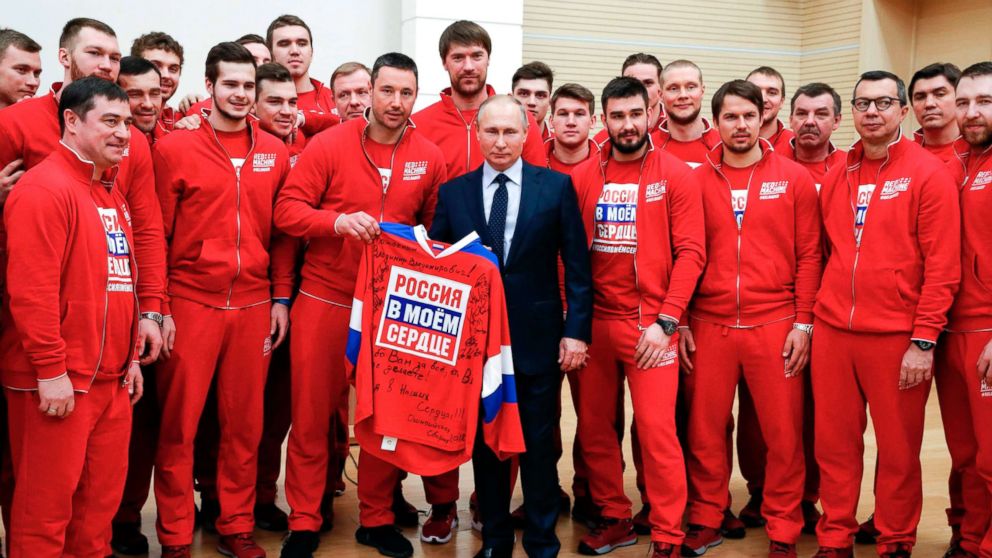Russia's Olympic athletes get a patriotic send-off from Putin amid doping scandal
— -- Russian President Vladimir Putin held an unabashedly patriotic send-off for his country’s Winter Olympics athletes on Wednesday as they prepared to travel to South Korea for an Olympics where Russia is officially meant to be all but invisible.
Russia is banned from the Olympics that begin next week in Pyeongchang, banished by the International Olympic Committee over a systematic cover-up of doping by its athletes. Instead, its athletes will compete as neutrals, the Russian flag and anthem will be absent from medal ceremonies, and Russia’s official medal tally will be zero.
But there was no doubting where the athletes were from on Wednesday, though.
In a hall at his vast Novo-Ogaryovo residence outside Moscow, Putin hosted the team, dressed in their unfamiliar neutral uniforms and severely reduced in size. Russia is sending only 169 of the more than 300 athletes it had hoped to after the IOC rejected the others over new doping suspicions.
“You are the captain of our country,” Pavel Datsyuk, an ex-NHL player and captain of Russia's hockey team, told Putin, before giving him a signed team jersey.
Putin and the athletes both took the opportunity to air their grievances over Russia's circumstances at the Olympics. Putin repeated a claim he and other Russian officials have made: that the IOC ban is a result of political machinations led by the U.S.

Today, Putin suggested to the athletes they were victims of geopolitics.
“Forgive us that we could not shield from that,” Putin told the athletes.
“It’s difficult to gain victory in modern sport at the highest levels,” Putin said. “It’s doubly difficult when sport gets mixed up with events and phenomena clearly unrelated, alien to sport. With politics or something else.”
The IOC banned Russia after its own commissions confirmed investigations by the World Anti-Doping Agency showing Russian sporting officials had run a yearslong scheme to conceal doping by dozens of athletes. An investigation by Canadian lawyer Richard McLaren for WADA found Russia’s anti-doping laboratory had worked to cover up positive samples from hundreds of athletes between 2012 and 2015, sometimes aided by the country’s FSB security service.
The cover-up took in the Sochi Winter Olympics that Russia hosted in 2014. An IOC disciplinary panel found 43 Russian athletes, including 13 medal-winners, guilty of participating in the doping system there. Thirty-nine Russians have appealed the IOC decision at the Court of Arbitration for Sport, which is due to rule on the case on Thursday.
Most Russians, however, do not believe the doping allegations, siding with the explanations offered by Russian officials, who have claimed the IOC ban is a plot to pressure Russia. A number of the athletes on Wednesday claimed the allegations involving some of their teammates were poorly supported or incomprehensible.

“I think the Olympics Games has become like a birthday party for the IOC -- they invite whoever they want. That’s not right,” Ilya Kovalchuk, a former NHL player who will playing on the Russian men’s hockey team in Pyeongchang, told ABC News.
Russian athletes will be competing under a special name in South Korea, “Olympic Athlete from Russia” or OAR. Their uniforms -- designed according to guidelines from the IOC -- require that there be no flag or Russian symbols on them. On Wednesday, the team was wearing two versions, red and white, and grey and white. A white circle with the words “Olympic Athlete from Russia” was placed where the country badge would normally be.
“We know we are Russian inside,” said Sophia Prosvirnova, a speed-skater. “But we are not allowed to call ourselves Russian. It’s very strange.”
Russia’s speed-skating squad has lost key stars, including Viktor An, a Korean short-track skater, who won three golds in Sochi. Olga Graf, a top women’s speed-skater, has refused to compete despite being cleared to do so after two of her partners in the team pursuit event were banned.
Prosvirnova said she did not believe the skaters had doped. “I know them very well. I know they didn’t break any rules,” Prosvirnova told ABC News.
Many of the athletes said they have made their peace with the odd circumstances and tried to forget them. The new uniforms, in reality, do not differ greatly from those of previous Russian Olympic squads, which are normally white and red.
“It’s just there’s no Russian symbol, that’s all,” Yuri Selikhov, a national champion in bobsled, told ABC News. “It’s clear we are completely Russian.”




